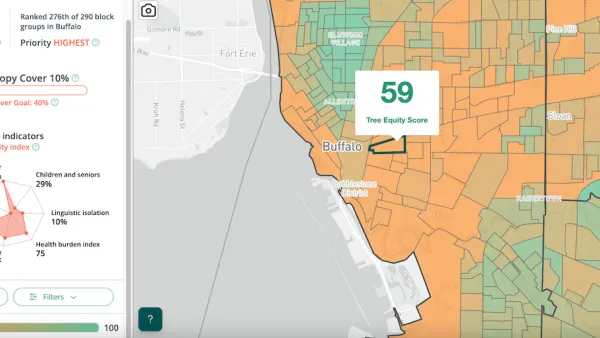An article by Woodbury University Professor Anthony Fontenot examines the effects of a history of opposition to planning as a centralized arm of the state, and proposes a way forward.

Anthony Fontenot provides a historic survey of arguments against planning to find a contemporary world suffering the effects of the lack of planning. Fontenot begins by stating the dilemma—that "even as metropolitan regions face increasingly severe and structural problems — water scarcity, cyclical flooding, atmospheric pollution, housing affordability, failing infrastructure — the capacity of cities to counter these problems is diminishing."
Then Fontenot proceeds to survey the history of intellectuals, designers who have argued against planning as an enemy of freedom. The survey begins with one of the "fundamental challenges to design in the 20th century"—that of Austrian-British economist Friedrich August Hayek. "In his influential mid-century treatise, The Road to Serfdom, Hayek argued that design — specifically, socialist or state-based planning — belonged to a zeitgeist characterized by a 'passion for a conscious control of everything.'"
Fontenot follows the lineage of Hayek's arguments through the Independent Group and the New Brutalists, Reyner Banham, Learning from Las Vegas, Rem Koolhaas, and more.
Fontenot does not, however, conclude by renewing these arguments and applying them to the contemporary world. Instead, he arrives at the following assertion: "As the focus on environmental issues has intensified in the past decade, as first sustainability and now resilience have become new mantras, the limitations of 'non plan' or 'no plan' have become ever clearer. And the environmental implications are only the most obvious. If as a discipline we thought we understood the history — and the shortcomings — of planning, it’s increasingly evident that we’ve paid comparatively little attention to the history of 'non planning' — to the tumultuous consequences of the lack of a plan."
Finally, Fontenot concludes by citing example of a new middle way, provided by Medellín in Colombia.
FULL STORY: Notes Toward a History of Non-Planning

Analysis: Cybertruck Fatality Rate Far Exceeds That of Ford Pinto
The Tesla Cybertruck was recalled seven times last year.

National Parks Layoffs Will Cause Communities to Lose Billions
Thousands of essential park workers were laid off this week, just before the busy spring break season.

Retro-silient?: America’s First “Eco-burb,” The Woodlands Turns 50
A master-planned community north of Houston offers lessons on green infrastructure and resilient design, but falls short of its founder’s lofty affordability and walkability goals.

Test News Post 1
This is a summary

Analysis: Cybertruck Fatality Rate Far Exceeds That of Ford Pinto
The Tesla Cybertruck was recalled seven times last year.

Test News Headline 46
Test for the image on the front page.
Urban Design for Planners 1: Software Tools
This six-course series explores essential urban design concepts using open source software and equips planners with the tools they need to participate fully in the urban design process.
Planning for Universal Design
Learn the tools for implementing Universal Design in planning regulations.
EMC Planning Group, Inc.
Planetizen
Planetizen
Mpact (formerly Rail~Volution)
Great Falls Development Authority, Inc.
HUDs Office of Policy Development and Research
NYU Wagner Graduate School of Public Service




























